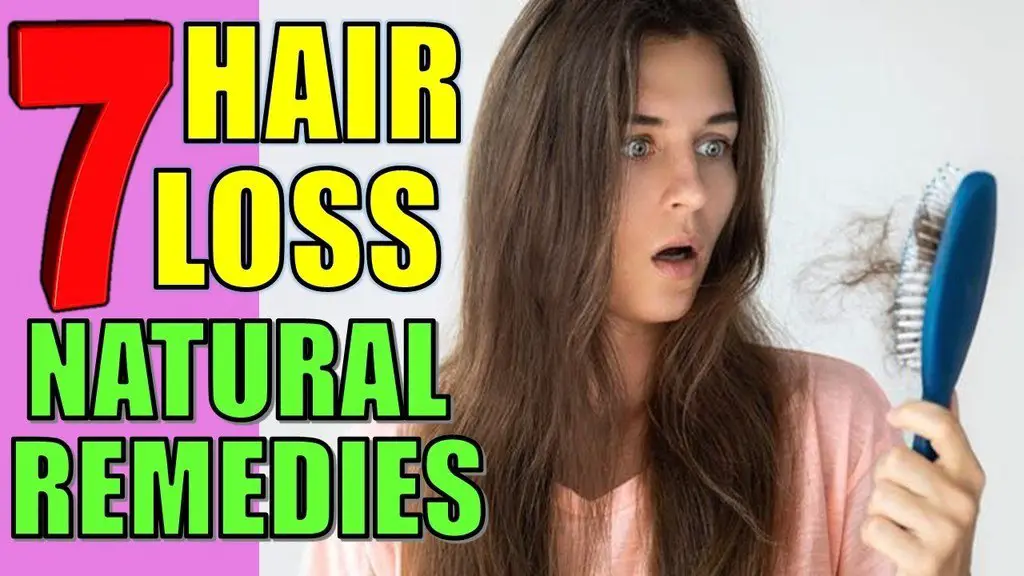Hair loss can be caused by a number of factors, and is frustrating for those who are experiencing it. Early hair loss and thinning can be embarrassing; however, with the help of one of several home remedies, hair loss can be prevented naturally.
This article will look at the causes of hair loss, and how to stop hair fall and even boost hair growth with natural remedies.
Causes of Hair Loss
There are many different causes of hair loss. From hormonal changes to lifestyle factors, it's important to determine the cause of hair thinning and loss so that you can boost your hair growth correctly, or learn how to prevent further hair fall.
Hormonal Changes
Hormonal changes can contribute to hair loss. Estrogen and progesterone are key hormones for hair growth and preventing hair loss. When estrogen and progesterone levels drop, it's more likely that you'll experience hair fall and thinning of the hair. This is mainly due to the production of androgens.
Androgens are produced at a higher level when there's a large drop in estrogen and progesterone. Androgens shrink the hair follicle and can cause peach fuzz-like hair to grow on the face for women.
These side-effects are more common in women experiencing menopause, as their hormones are changing. Hormonal changes are also the reason why pregnant women have healthy hair. During pregnancy, there's an increase of estradiol and progesterone, which promote hair growth and prevent hair loss.
Medical Conditions
There are several medical conditions that may also impede hair growth:
PCOS
Hormonal changes due to PCOS can contribute to hair fall. Women with PCOS experience elevated androgens, which leads to hair thinning and loss, while hair appears on the face and neck.
Anemia
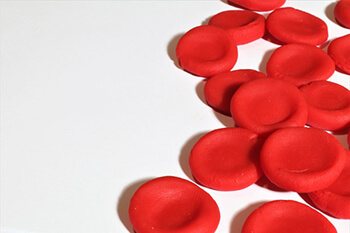
Anemia is when the body can't carry enough oxygen to its tissues, because of the lack of healthy red blood cells. People who suffer from anemia tend to experience shortness of breath and fatigue, and those with iron-deficient anemia are more likely to experience hair loss. This is because iron is essential for creating proteins in the hair, which help it grow and prevent it from falling. When these levels drop, the hair stops growing and falls at a faster rate from the scalp.
Hypothyroidism
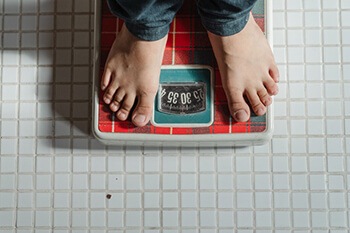
Hypothyroidism is a condition where the gland in the neck isn't producing enough hormones. This causes weight gain, sensitivity to the cold, and chronic fatigue. Due to the low levels of hormones, it's more likely for hair loss to occur. Hair has a surprisingly long growth cycle, so hair loss may not appear for months after hypothyroid issues begin.
Hyperthyroidism
Overactivity of the thyroid, on the other hand, is called hyperthyroidism. People with hyperthyroidism may also experience unexplained weight loss, heart palpitations, hand tremors, and thinning of the hair. The disruption of the T3 and T4 hormones in the thyroid from hyperthyroidism causes thinning and loss of hair.
Alopecia
Alopecia is a common autoimmune disorder that causes hair thinning and loss. The immune system attacks hair follicles, which impacts hair health. People with alopecia experience hair loss in small patches over the scalp instead of a general thinning or fall. We still need to carry out more research into why certain people have alopecia, but it's thought that this condition is mainly genetic.
Medications

Some medications may be responsible for hair loss. For this reason, it's important to talk to your doctor about the possible side effects of using medications if you're particularly concerned about hair fall. Chemotherapy drugs, antidepressants, and even some acne medication can cause hair loss. If you're experiencing hair loss and think it's due to your medicine, speak with your doctor.
Lifestyle Factors
Different lifestyle factors may affect hair loss just as they affect hair growth. Stress, weight changes, and age all have a part to play in our hormones, and can contribute to hair loss.
Stress
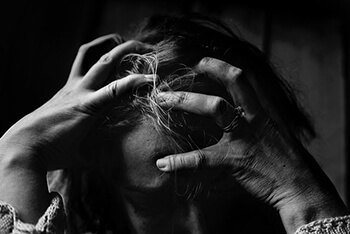
If you're undergoing significant stress, your hair growth can be pushed into the resting phase of its growth cycle. This prevents hair from growing and can lead to hair loss.
People experiencing high levels of stress may also pull at their hair in an effort to self-soothe - and this pulling may also be due to boredom. If you ever notice that you're subconsciously pulling your hair, you should take measures to refrain from doing so, as it yanks the hair from the follicle and prevents healthy hair growth.
Weight Changes
A common factor in hair loss is drastic weight changes. People who lose a large amount of weight in a short amount of time may experience hair loss, which is potentially due to malnutrition. Your body is put under stress, and hair follicles shrink, causing hair to fall from the scalp.
Hair loss may also occur if you suddenly change how much protein you include in your diet. A low amount of protein can cause hair to stop growing or to fall.
Age
As we grow older, it's more likely that we'll experience hair loss, caused when hormone levels change due to menopause or from ailments such as male pattern baldness. Hair follicles shrink, and hair stops growing at its usual rate.
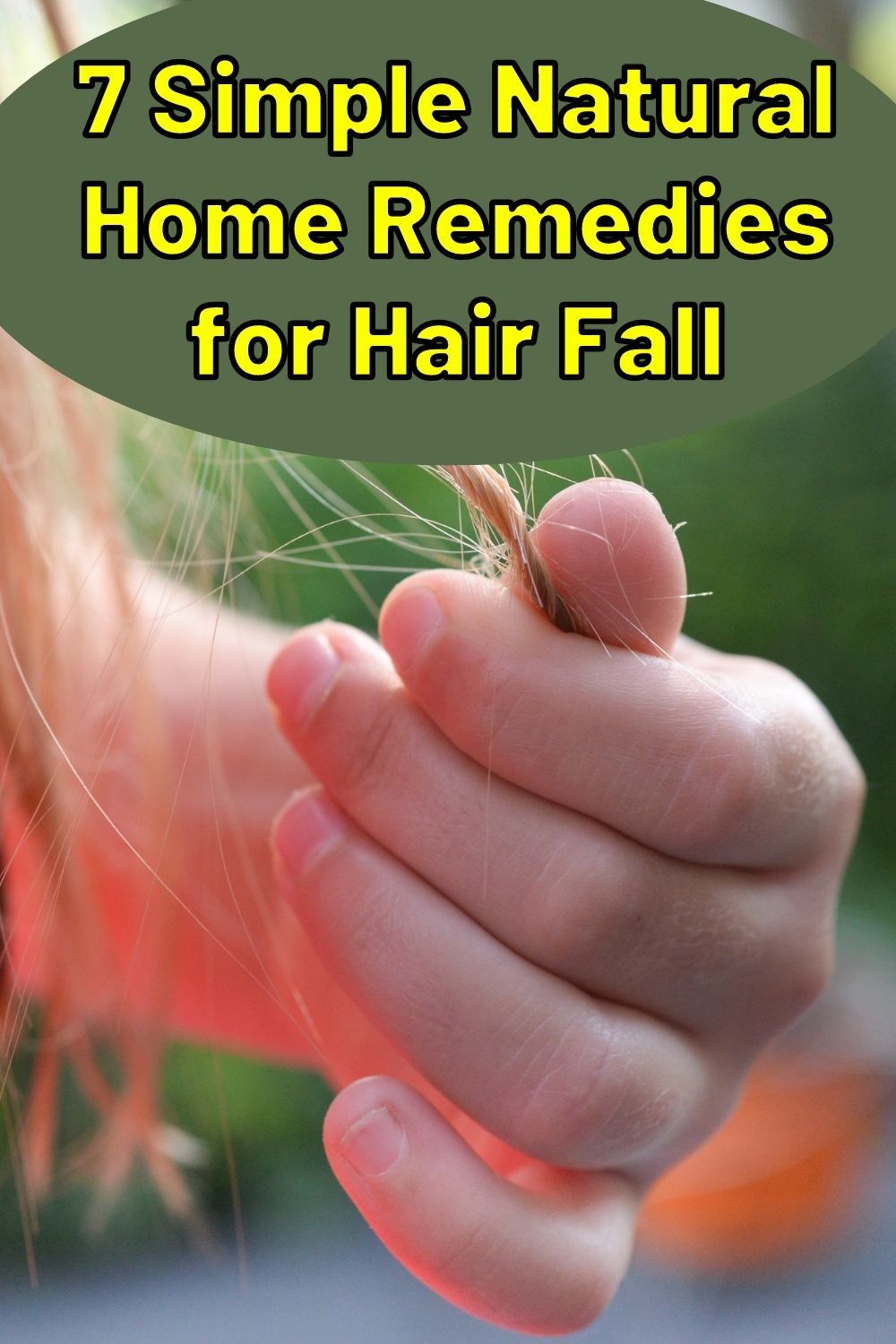
Natural Remedies for Hair Loss
Now we know about some of the causes of hair fall, we can look at ways to treat hair loss and even stop hair fall altogether.
There are many natural remedies that can be used to boost hair growth and prevent hair loss. A healthy lifestyle can help control hair fall and thinning hair. There's no need to pay for expensive commercial sprays and shampoos that probably won't even work in the first place.
Below are some natural remedies that are worth trying out if you're experiencing hair loss.
Coconut Oil
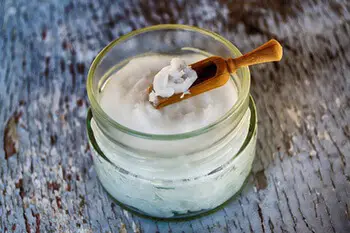
Coconut oil can help treat hair loss by penetrating the hair shaft to stop the loss of proteins. Coconut oil can also promote a healthy scalp, as it helps prevent build-up on the hair and scalp while promoting moisture, which helps keep hair healthy.
To use coconut oil for hair growth, first wash your hair with a mild shampoo, then use coconut oil as a conditioner. You can also apply coconut oil as a hair and scalp mask, covering it with a shower cap and letting it sit for twenty to thirty minutes before rinsing.
Onion Juice
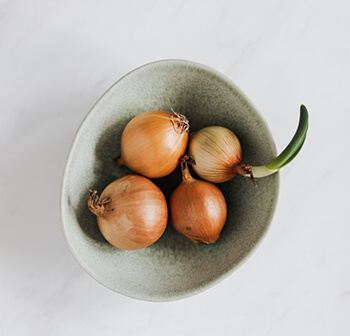
It may not sound too appealing, but some studies have shown that onion juice promotes hair growth in people with alopecia. Participants applied onion juice to their hair and scalp twice a day before rinsing with water. People who used the onion juice compared to just water found that their hair regrew noticeably. The extra sulfur in onion juice helps with hair regrowth, dry scalp, and scalp infection.
Aloe Vera
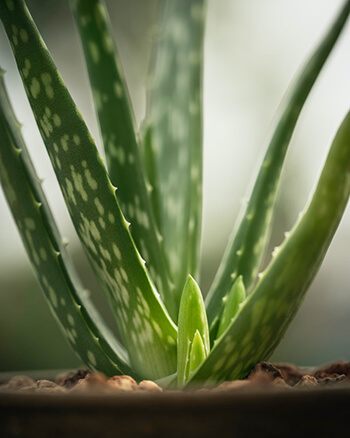
Aloe vera contains essential vitamins for the hair. Vitamin A, vitamin C, and vitamin E are all great for healthy, strong hair. Some enzymes found in aloe vera can help stimulate dormant hair follicles to promote faster growth. Aloe vera is also a great way to moisturize the scalp and hair, which is essential for your hair care routine. Use the gel as a shampoo twice a week to wash your hair.
You can also use aloe vera as a hair mask. Simply scoop the gel from the aloe vera leaf and place it into a food processer. Add in a tablespoon of argan oil and strain the mixture. Pour this concoction into a squeezy bottle and apply generously to the hair. Leave it for thirty minutes, then rinse.
Green Tea
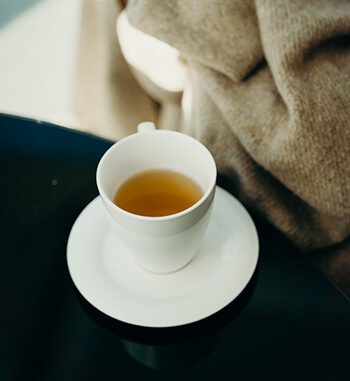
Green tea can be used to treat excessive hair loss, as it contains something called EGCG, or epigallocatechin. EGCG can help inhibit hormones that cause hair loss and promote new hair growth.
To use green tea to fight hair loss, put green tea bags in a teapot and steep. Aim to drink one to two cups of green tea a day.
Alternatively, you can use green tea as a rinse instead of normal water. Using green tea as a rinse can help fight scalp infections, as the tea has antibacterial properties, and boosts hair growth. It's particularly beneficial for people who suffer from alopecia areata, and is gentle on hair strands, reducing hair fall. Ideally, green tea should be used every other wash, to be switched out with a mild shampoo.
Hairstyle Changes

How do you wear your hair every day? You might not know that certain hairstyles can cause hair damage and cause further hair loss. If you are experiencing hair loss, it's important to avoid tight hairstyles like high ponytails, braids, and updos. Use hair ties that are gentle on the hair, and when tying your hair, make sure that it's done loosely, so it doesn't damage the hair further.
Gentle hairstyles include loose braids, stylish headbands, or loose buns. Be sure that your hairstyles aren't constantly pulling on your hair to control hair fall. When styling your hair, make sure that it's dry and not damp. If you have no choice but to style damp or wet hair, use specialized combs and be gentle brushing from the ends to the roots. Never yank too hard on the strands - wet hair is more prone to breakage, especially when brushed or dried incorrectly.
You should also avoid using heat to style your hair, especially curling irons and flat irons. The high heat damages your hair and makes it more likely to break.
Lifestyle Changes
A healthy diet can help prevent hair fall and promote hair regrowth. In fact, along with maintaining a healthy weight and lowering stress levels, a healthy diet can control hair fall significantly.
Do your best to lower stress levels by engaging in healthy practices such as meditation, yoga or your preferred relaxing activity. If you do find yourself playing or yanking on your hair when you're stressed, see if you can replace this habit with another one, such as squeezing a stress ball.
Getting an adequate amount of sleep can help reduce stress and prevent hair loss. Be sure to sleep on a satin or silk pillow to prevent hair breakage when sleeping. You should also aim to have dry hair before going to bed.
Eating a balanced diet with essential nutrients can help prevent hair loss. Eggs contain a good source of protein and biotin, both of which are essential to hair health. Berries contain a good amount of vitamin C, which protects hair follicles. Eating fatty fish such as salmon can help promote hair growth, too. The omega-3 fatty acids help reduce hair loss in people dealing with thinning hair.
Sweet potatoes contain beta-carotene, which is great for hair growth. Vitamin A is proven to speed up the growth of hair and thicken the hair, making the hair more resilient to certain styles. Avocados contain a good dose of vitamin E, which has been proven to accelerate hair growth.
Conclusion

Hair loss can be caused by many conditions - from something as simple as stress, to hormonal issues, to conditions such as androgenetic alopecia. Natural treatments can help with improved hair growth and stop hair fall. Coconut oil is a great natural remedy for hair loss, and aloe vera is a good remedy, too.
Be sure to treat your hair with care. Eating a balanced diet that's full of nutritious vitamins and minerals can help promote the growth of new hair while preventing hair loss. Vitamin A boosts hair growth and improves the general health of the hair.
Using natural remedies and hair care tips can prevent the loss of hair and encourage healthy hair growth. Before you invest in over-the-counter hair care products, try these simple, affordable remedies instead.

